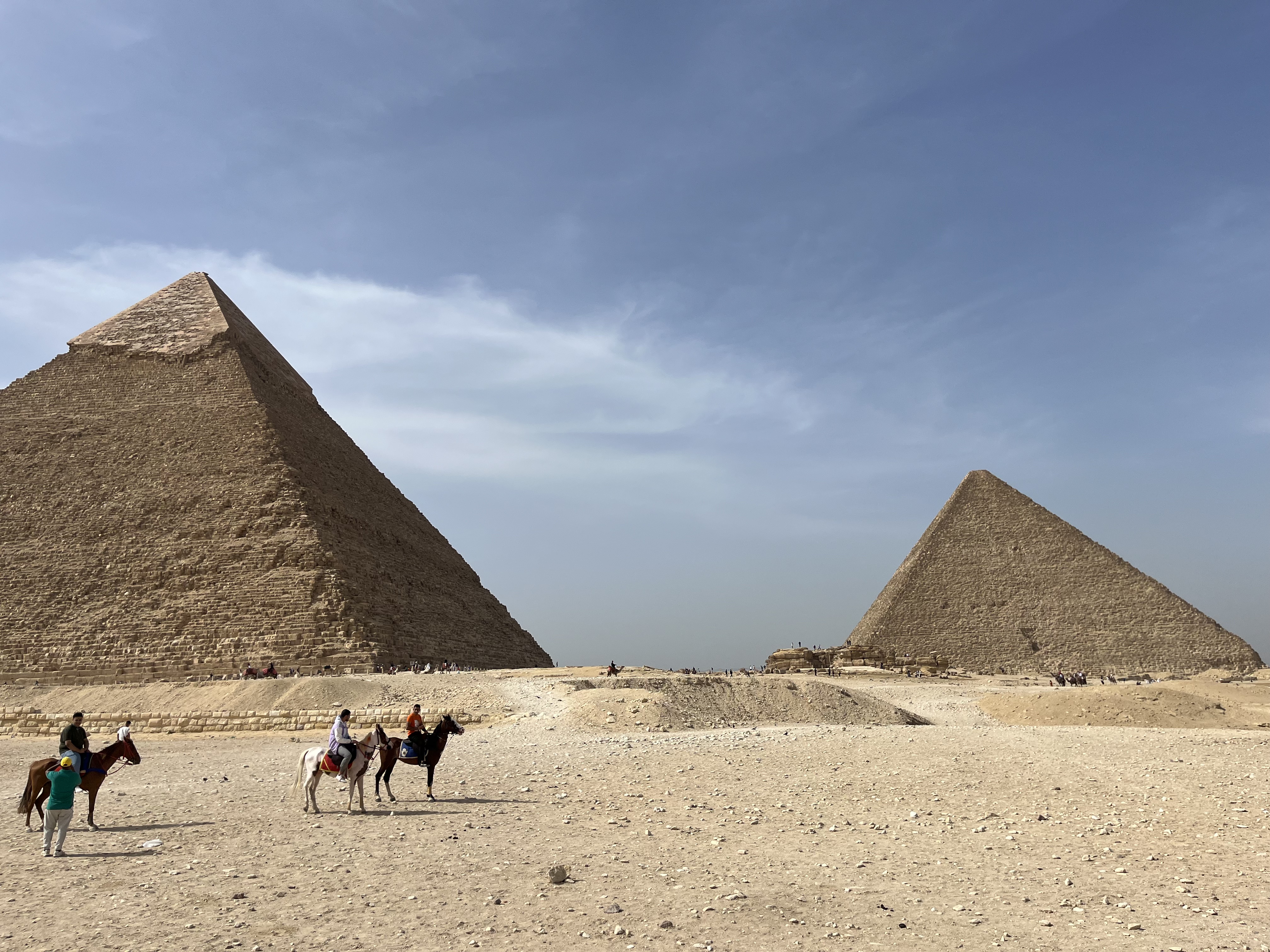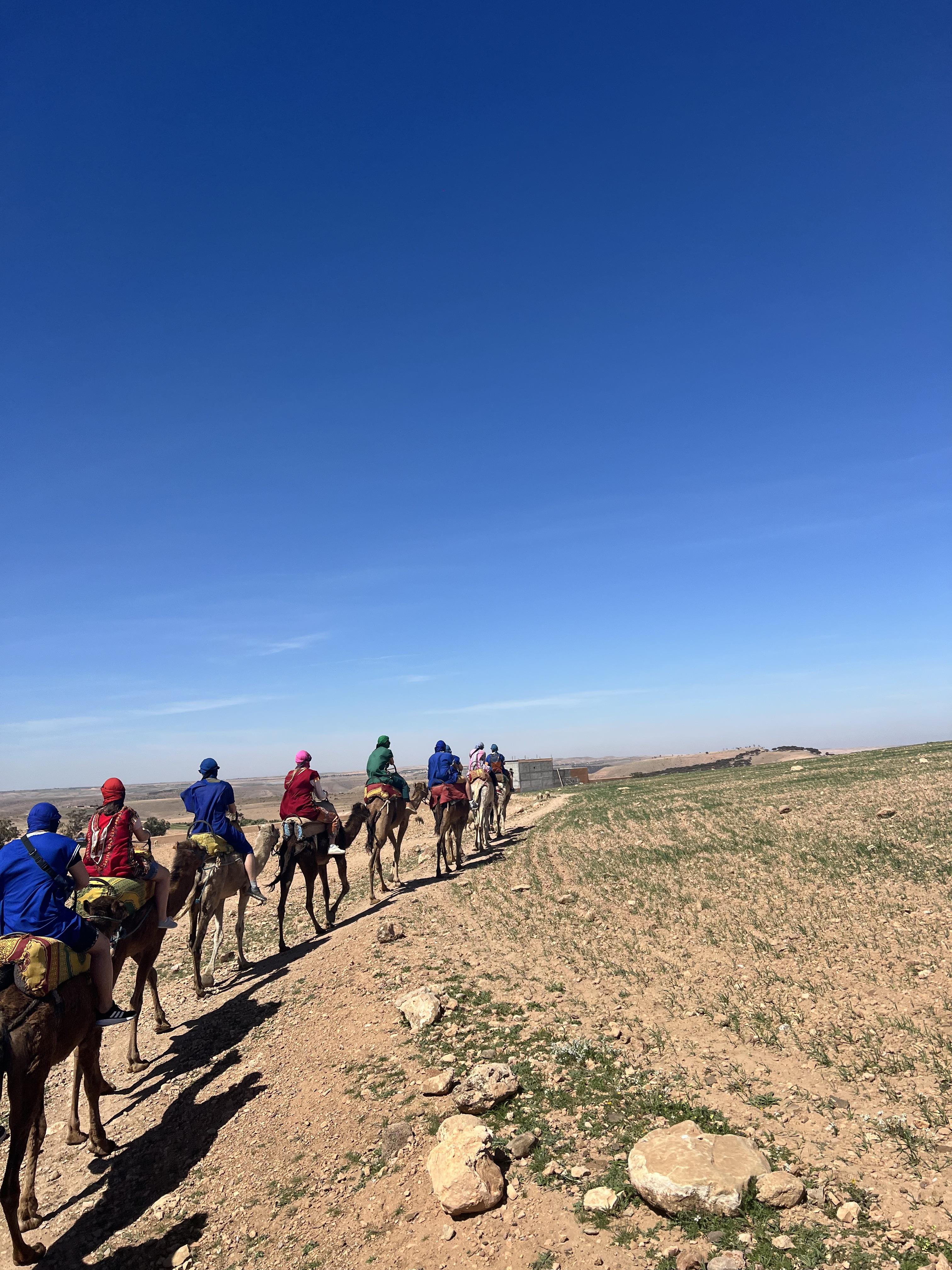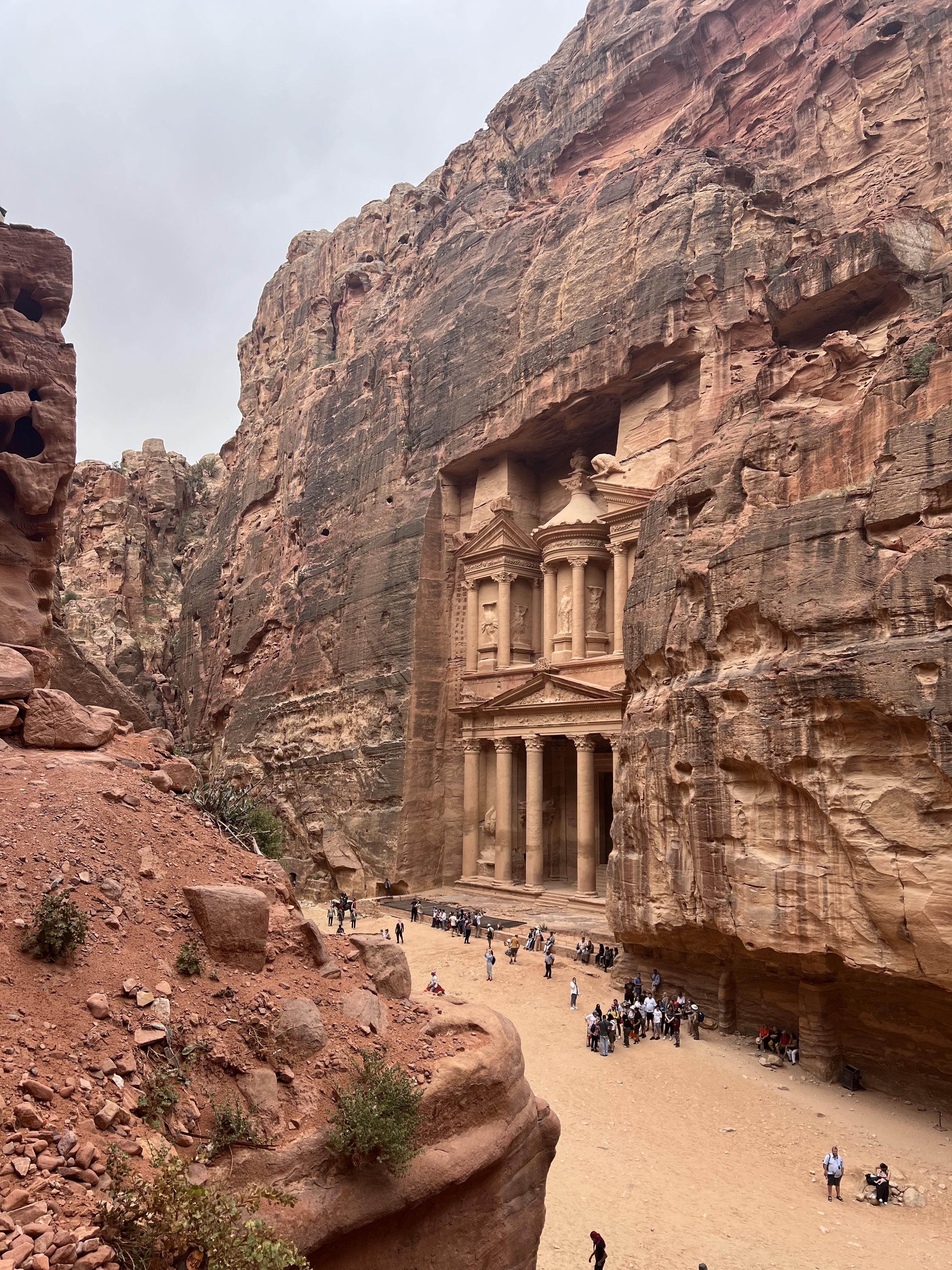
The Similarities and Differences Among The MENA Region: Egypt, Morocco, Jordan
Aaya Anan

I used to think every country in the Middle Eastern North Africa region was more or less the same, the only difference being the name of the country. I mean, they all speak Arabic and they're all in a dessert. What else is there? Well, after visiting various countries among the region, I can't emphasize how wrong my initial assumption is.
As I share my personal experiences as a tourist in these countries, I think it is important to note that although I grew up in the USA, I am ethnically Egyptian. So, my experiences in these countries may be different than people who look "more foreign".
Language
The official language in Morocco, Egypt, and Jordan are all Arabic but the similarities stop there. Each country has their own unique dialect. Meaning, different countries use different words and phrases. For example, in Egypt we say "laban" for milk and in Jordan and Morocco they say "haleeb". For background: I grew up in an Egyptian Arabic speaking household, so Egyptian dialect was obviously the easiest for me to understand. I also grew up studying formal Arabic so Jordanian Arabic was also pretty easy for me to understand, because it sounded most similar to formal Arabic in my opinion. But, nothing prepared me for the Moroccan dialect. That was absolutely the hardest to understand. I don't even know if it should be considered Arabic because it literally sounds like a different language.
And not knowing the language is a major inconvenience. When we first landed at the airport in Morocco we needed to get a taxi to our accommodation. We go to the taxi line and there is a sign that said the flat rate to Marrakesh Medina (which is where we were staying) is 70 dirhams. My friend and I were also thinking, oh we are Arabs, we won't get scammed as long as we speak Arabic! Well, no. Correction: you won't get scammed as long as you speak Moroccan Arabic. Which, we didn't. So, spoiler alert we got scammed. We went to the taxi driver and he says it is 200 dirhams. We point out that the sign says 70 dirhams. He says that is an old sign that has yet to be updated. We could tell he is clearly not going to budge and give us the fixed rate from the sign, so we negotiate it down to 150 dirhams at least. We give our taxi driver our address and he does not drive us to our accommodation?? He drives us to a random main road and tells us this is where we are staying and it is a 3 min walk from here. More background information: we had no cell service in Morocco and had yet to buy a sim card. We ask the taxi driver to at least show us which direction to walk in on his maps. He opens maps on his phone and it said we are 20 minutes away from our accommodation, not 3. We point that out and he tries to gaslight us that google maps is wrong. We tell him to drive us to our accommodation like he agreed initially and he said we need to give him more money. So, long story short we ended up giving him 200 dirham. But yeah, getting scammed was not fun.
Food
In Morocco, you'll find dishes like couscous, which is made with tiny grains and can be topped with veggies and meat. They also have tagine, which is a stew cooked in a special clay pot.
In Egypt, one popular dish is koshari, made with rice, lentils, pasta, and a tomato sauce. I personally am not the biggest fan of koshari - too many different textures in one dish for my liking - but it is what Egypt is known for so definitively give it a try. My personal favorite dish is "Macarona Bechemel" - it is my go-to comfort food and consists of penne pasta, minced beef, and bechemel sauce.
In Jordan, you can try maloubeh. Maloubeh, meaning "upside down," is a flavorful one-pot dish. It typically consists of rice, meat (such as chicken, lamb, or beef), and a variety of vegetables like eggplant, cauliflower, and carrots. The ingredients are layered in a pot, cooked until tender, and then flipped over onto a serving platter. Also, za'atar and labne is very popular among the levant region. I know za'atar and labne is popular across the world, but if I am being completely honest I never tried it growing up in an Egyptian household. I tried it for the first time when I first entered college and met Lebanese and Jordanian friends. And honestly I am glad I did because it is one of my favorite foods now.
Safety
It is hard to talk about safety because how safe you feel can depend on a variety of factors such as what area you are staying in, your familiarity with it, your gender etc. So, take everything I say with a grain of salt because this is based off my own personal experiences in each country.
Out of the 3, Jordan is doing the best economically. You can find lots of expats there and everyone seems more "civilized" compared to Egypt and Morocco. I noticed a couple stares in Amman, Jordan but honestly nothing more than that. No catcalls, nobody following me; I didn't experience any uncomfortable interactions while I was there.
I personally felt very safe in Egypt, but I do acknowledge that may be because I was with my family who live there and I also understand the language and don't really look like a tourist. But, as a woman I definitely noticed a lot of stares. A lot. One thing I thought was funny about the Middle East in general though is the amount of people who would shamelessly stare at you. In America, if you catch someone staring then they quickly look away because it is considered rude to stare. But in the Middle East they really don't care if they are being obvious. They will not look away, no matter if you catch them staring or not.
In Morocco, I felt the most unsafe. There were lots of stares and catcalls. One time I was walking slower than my friend because I had a blister on my foot so I was maybe 2 feet behind. Since I looked like I was alone, I noticed the catcalls starting to get more prominent and even men starting to follow me.

MENA Region vs. USA: Cultural Differences
We talked about the differences between different MENA region countries, now let's talk about the difference between those countries and the USA.
First, In the Middle East, people just enjoy life. Way more than in America. In America, it feels as though people live in order to work, whereas in the Middle East it is the exact opposite. People there are just happy to be alive, it is very common to see people singing and dancing on the streets.
Also, in the Middle East there is a huge emphasis on community, which is opposite to the value of individualism in the United States. With this, I also noticed a lot more generosity. Growing up in an Egyptian household, my parents engrained in me to always fight for the bill, to always strive to be generous and it is an honor to pay the bill. And if you are Arab you were probably instilled with the same values. Because of this, I grew up always insisting to pay for everyone when my friends and I go out. Only thing is, I grew up in America. So, there was never a fight over the bill, my friends would just let me pay it. Moreover, this turned to something people would take advantage of. I noticed Americans are so stingy when it comes to money; for example, if they buy you $3 coffee, they will request you pay them back. Or at a restaurant, they will evenly calculate to the cent how much each person owes. In the Middle East, people will give you their last dollar if you needed it. And you wouldn't even have to ask, they would offer. They place such a value on their community, putting others above themself always.
Another difference I noticed between the USA and the Middle East is how nosy everyone is in the Middle East. There, your business is everyone's business. In the USA there is a value on privacy, but in the Middle East they will ask the most unhinged questions. When I was in Jordan I was at a restaurant and I asked where the bathroom is. The server noticed my accent is Egyptian and then proceeded to ask me what part of Egypt am I from and what am I doing in Jordan and what am I studying and why were he asking all these questions? I have no idea why he cares. Another instance of this happened in Egypt, someone was helping me carry my bags at the airport and then asked what my last name was, who my dad is, if my dad is related to his friend, what my dad does for a living, why I moved to America. The point I am trying to make is strangers will ask the most personal questions and with absolutely no shame at all.
